As a mom of two young kids, I’m always looking for ways to get more nutrition into our family meals. That’s why I was so excited to start experimenting with almond milk. Not only is it dairy-free, which is great for my little one with lactose intolerance, but it’s also packed with vitamins, minerals and healthy fats.
In this blog post, I want to share my journey into the wonderful world of almond milk-based recipes. I’ll talk about why I wanted to make the switch from regular cow’s milk, how almond milk has benefited my family’s health, and some of my favorite ways to cook and bake with this versatile ingredient.
From creamy hot cereals to rich banana bread, almond milk has allowed me to reimagine many family favorites in a more wholesome, nourishing way. My kids are none the wiser and simply enjoy the yummy flavors. I love that I can feel good about what I feed them now.
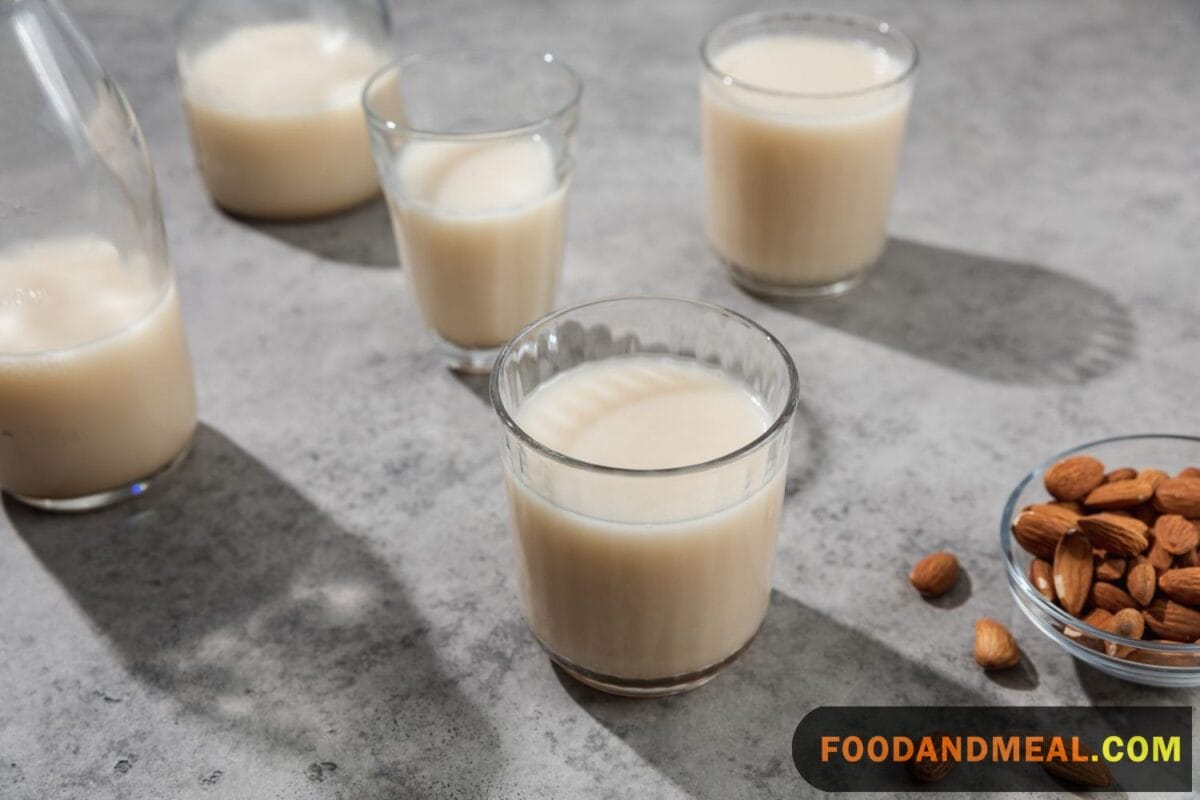
Almond Milk
Recipe
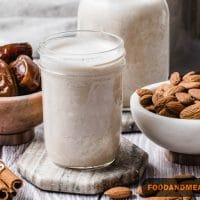
Almond milk
Ingredients
- 1 cup raw almonds, preferably organic
- 2 cups water, plus more for soaking
- Sweeteners like honey, sugar, agave syrup, or maple syrup, to taste.{ If you prefer the almond milk unsweetened do not take any)
Instructions
- Soak the almonds overnight or up to 2 days.
- Place the almonds in a bowl and cover with about an inch of water. They will absorb water.
- Let stand on the counter, covered with a cloth, overnight, orrefrigerate for up to 2 days. (The longer the better).
- Drain and rinse the almonds thoroughly under cool running water.
- At this point, the almonds should feel a little squishy.
- Combine the almonds and water in a blender. Place the almonds in the blender and cover with 2 cups of water.
- Blend at the highest speed for 2 minutes. Pulse the blender a fewtimes to break up the almonds, and then blend all the time for twominutes. The almonds should be broken down into a very finemeal and the water should be white and opaque.
- Strain the almonds.
- Line the strainer with either the opened nut bag or cheese cloth,and place over a measuring cup. Pour the almond mixture into thestrainer.
- Press all the almond milk from the almond meal.
- Gather the nut bag or cheese cloth around the almond meal andtwist close.
- Squeeze and press with the hands to extract as much almond milkas possible.
- Sweeten to taste as desired.
- Refrigerate almond milk.
- Store the almond milk in sealed containers in the fridge for up totwo days.
Video
Notes
Chocolate: Add 1/2 cup cocoa powder to the almond milk, add stevia, honey
or other sweetener, blend and strain again.
Berry or Cherry: Add 1/2 cup of frozen berries or cherries, add your preferred
sweetener, blend and strain again.
Vanilla: Scrape the contents of 1 vanilla bean into the almonds or add 1/4 tsp.
vanilla essence.
Spices: cinnamon, nutmeg, cardamom are tasty and potentially therapeutic.
Mexican-style chocolate: Add 1/2 tsp. cinnamon and a pinch of cayenne.
Nutrition
© Food And Meal
This website provides approximate nutrition information for convenience and as a courtesy only. Nutrition data is gathered primarily from the Spoonacular Database, whenever available, or otherwise other online calculators.
Making Almond Milk Using a Slow Cooker
Commence by soaking almonds overnight for softening, then transfer to a slow cooker with water for a 6-8 hour steep. Blend the mixture until creamy, strain through a cloth, optionally flavor, and store in sealed containers in the fridge. Remember to shake before use to remix any natural separation.
Cooking Tips
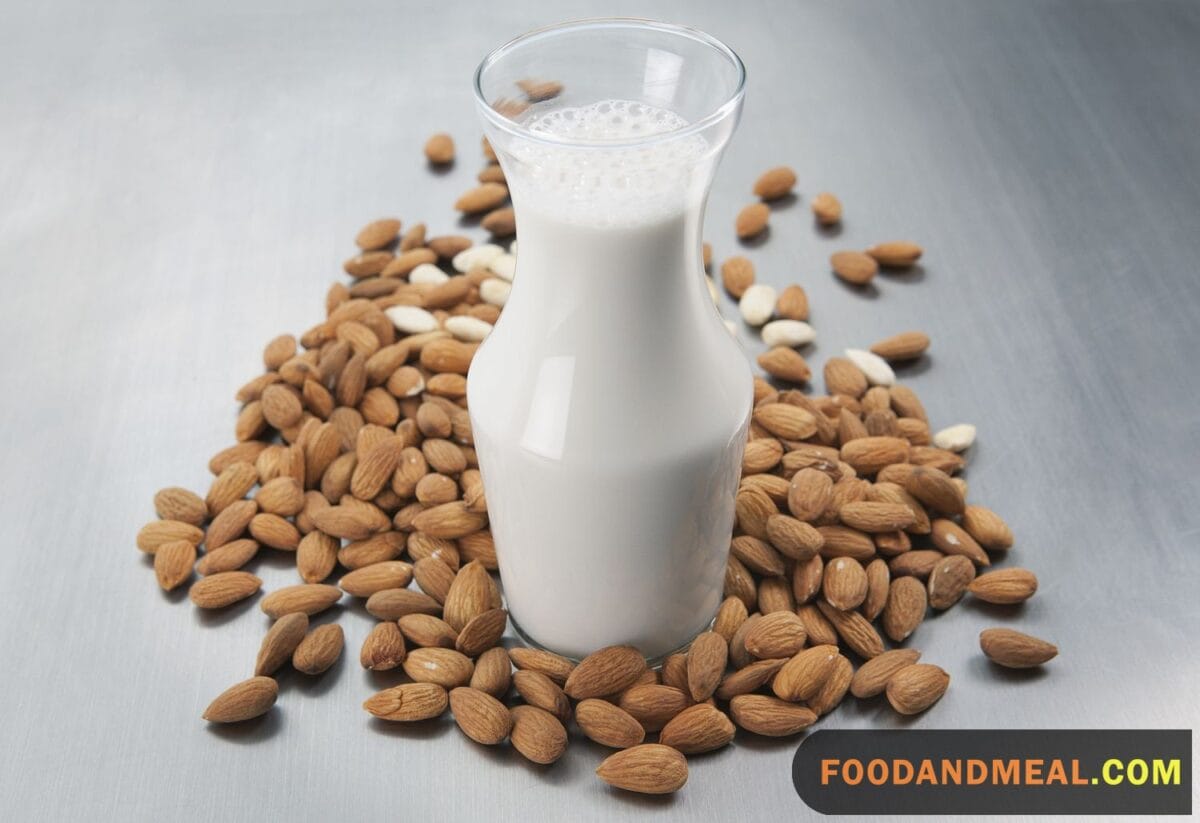
Creating almond milk is a personal and satisfying journey, marked by moments of anticipation and culinary artistry. Soaking almonds overnight feels like preparing for a gentle culinary embrace, setting the stage for the creamy magic to unfold. Transitioning to the slow cooker introduces a sense of serenity, as almonds steep slowly, creating a richer, nuttier symphony over 6-8 hours. Blending becomes a velvety ballet, each pulse a step closer to a luscious masterpiece. Straining feels like a delicate dance, an intimate connection with ingredients. Adding flavors is akin to composing a personal note, expressing taste preferences. Sealing almond milk into containers is not just storage but the encore of a culinary symphony, patiently waiting for its next performance in your favorite recipes
Serving Suggestions
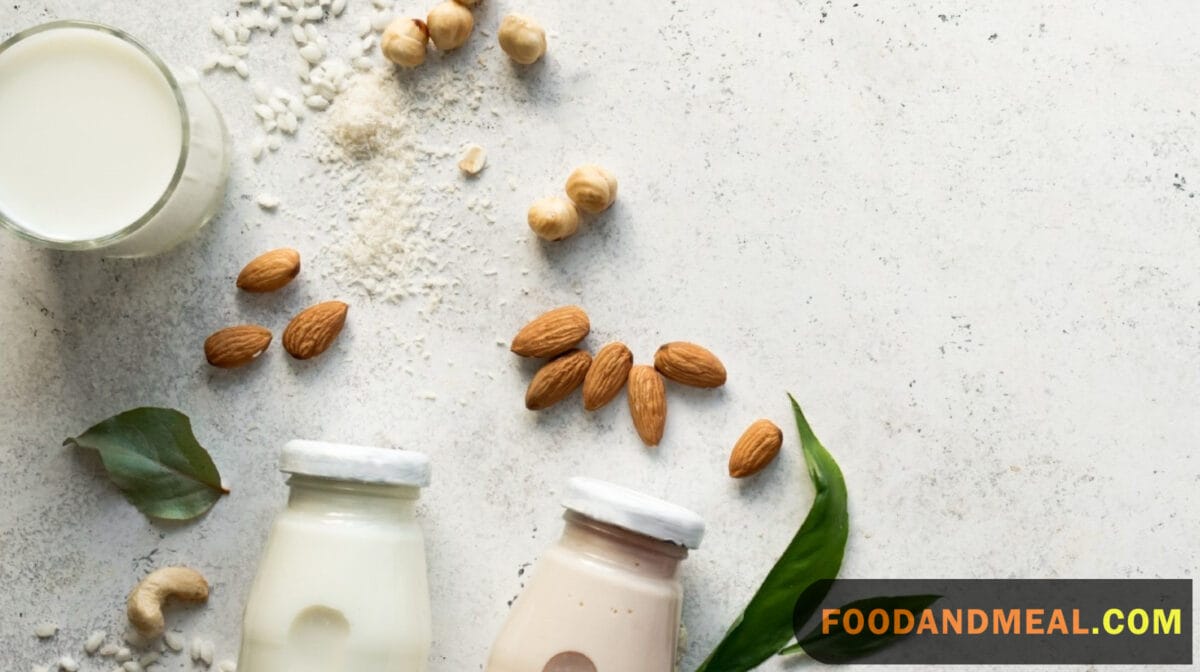
Begin your mornings with a nutritious Almond Milk Smoothie Bowl, blending fruits and topping with granola. Elevate your coffee experience with a dairy-free Almond Milk Latte. For savory delights, infuse almond milk into Curry Yakisoba or Spinach Quiche. Indulge your sweet cravings with Almond Milk S’more Cookies, Chocolate Babka, or Vanilla Oreo Cake. For a fruity dessert, try the Almond Milk Blueberry Cobbler. Don’t forget the savory twist with Almond Milk Shakshuka, creating rich, almond-infused tomato sauce. Almond milk adds a creamy and nutty touch, transforming diverse recipes into delightful culinary creations.
FAQs of Almond Milk
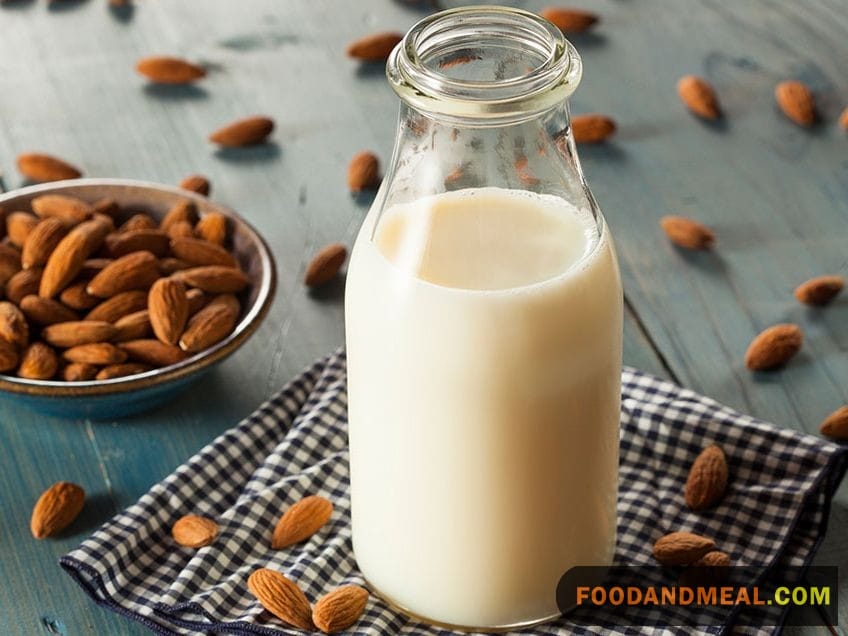
- How healthy is almond milk for you? Almond milk is a nutritious option, naturally low in calories and a good source of vitamin E. It’s also dairy-free, making it suitable for those with lactose intolerance or on a vegan diet.
- What is the healthiest milk to drink? The healthiest milk depends on individual dietary needs. Almond, soy, and oat milk are popular choices, each offering unique nutritional benefits. Consult with a nutritionist to find the best fit for your lifestyle.
- Can I drink almond milk everyday? Yes, almond milk can be consumed daily as part of a balanced diet. It provides a dairy-free alternative with essential nutrients, but it’s crucial to ensure a varied intake of nutrients from different sources.
- Which is better, oat milk or almond milk? The choice between oat and almond milk depends on personal preferences and nutritional needs. Oat milk generally offers more fiber, while almond milk provides healthy fats. Consider consulting with a nutritionist for personalized advice.
- How long does homemade almond milk last?
Freshly made almond milk can be stored in the fridge for up to 5 days. Ensure it’s kept in a sealed container to preserve freshness. Before each use, give it a good shake, as separation is natural. - Why is my almond milk too thin?
The almond-to-water ratio plays a pivotal role in determining consistency. If your milk is too thin, try using fewer water next time or increasing the almond quantity. Additionally, blending for a longer duration can also aid in a creamier texture. - Can I use roasted almonds?
While raw almonds are the go-to for most recipes, roasted almonds can be used for a deeper, nuttier flavor. However, bear in mind that the final milk might have a slightly different color and a more pronounced taste. - What can I do with the leftover almond pulp?
Waste not! The leftover almond pulp can be added to oatmeal, smoothies, or baked goods. You can also spread it on a baking sheet and bake at a low temperature to create almond flour. - Is it necessary to peel the almonds?
While unpeeled almonds provide a richer taste, some prefer peeling them for a smoother texture. It’s a matter of personal preference. If choosing to peel, soaking makes the process easier.
Conclusion
In conclusion, almond milk can be a tasty and nutritious addition to your diet. As discussed on Food and Meal, almond milk is naturally dairy-free, low in calories, and rich in vitamin E . It can be substituted for regular milk in many recipes, adding a pleasant nutty flavor. However, almond milk lacks the protein and other nutrients found in dairy milk, so it cannot fully replace cow’s milk in the diet. The best approach may be enjoying almond milk in moderation as part of a balanced diet with plenty of fruits, vegetables, whole grains, lean protein and healthy fats. Check out Food and Meal for more details on the pros and cons of drinking almond milk as well as for recipes using this popular dairy alternative.
Hi! I'm Nazia of ‘Nazia Cooks’, a self-taught baker and cook residing in Chennai. Rooted in the rich South Indian culinary landscape, my palate has expanded to embrace global flavors. I revel in crafting fusion dishes, melding traditions to birth unique tastes.



